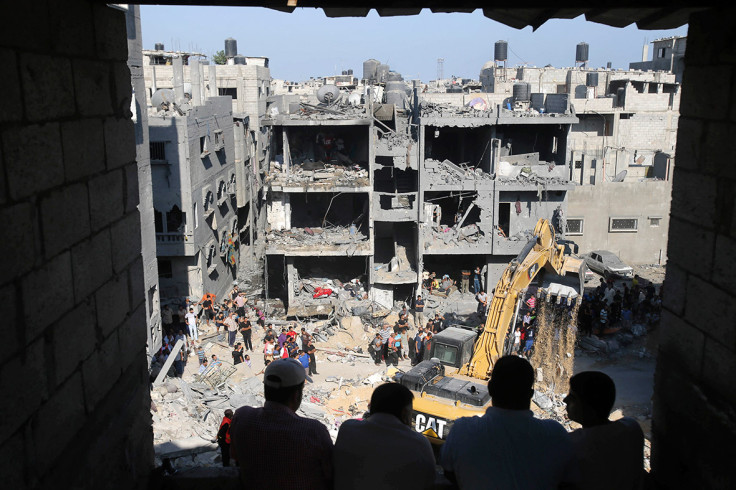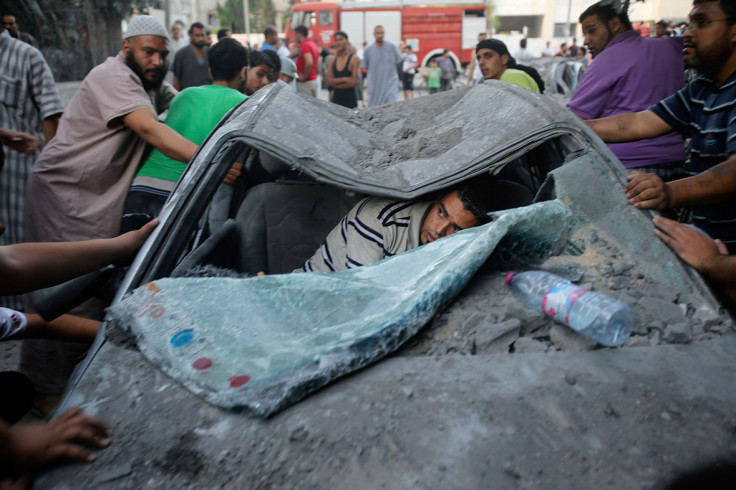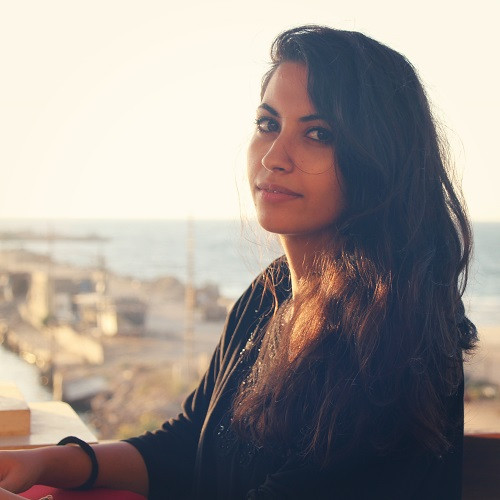Frontline Gaza Strip: Diary of a Night in Hell

This is a full and genuine account of my experiences on the night of 20 August, during the Israeli bombardment of Gaza City, where I live.
I slept most of the day, exhausted, ignoring all the hellfire from Israel, which broke the ceasefire the previous day. I had been stuck in a hotel, not being able to leave due to the intensive shelling at night.
After three days of being busy with work, I was back at the house on 20 August. Well I wasn't actually at the house I used to live in my whole life; I was in a rented home with my parents and siblings.
6 PM. I wake up at a sound of a flying missile. I am still not fully conscious, but I have vivid thoughts about the missile; it feels like it's coming to hit me, either through the window, or maybe it will smash into the mosque that looms in front of our building and I will be hit by the shrapnel. Israel hates mosques.
I feel like this missile is taking forever to reach its destination, but then I hear the explosion nearby. I want to know where it fell; I'm safe now. I go back to sleep, still not fully refreshed after the exhaustion of the previous few days.
6.30 PM. I wake up again, and ask my sister where the explosion I heard half an hour ago happened. She doesn't reply. The shelling continues, we can hear it all around.
7PM. I'm fully awake now, and the air is still alive with the sound of rockets.
The Qassam Brigades have delivered a speech about the violation of the ceasefire and the massacre committed towards the Al-Dalou family by the Israeli Occupation Forces and its attempt to assassinate the chief commander of Qassam Brigades. We have no electricity so I can't watch it on TV, but I follow it on Twitter.
8PM. I'm not interacting with my family much, I just focus on reading tweets, catching up on news of Israel's merciless shelling of Rafah City during the day. We couldn't hear the bombardment in Rafah, so I rush to find out as much as I can.
The first thing I see is a tweet from my friend Yousef Al-Jamal, a Palestinian studying in Malaysia, talking about the IDF targeting his aunt's house. "Three missiles targeted my aunt's house, levelled to the ground, home for five families, all homeless now." But mercifully, miraculously, it turns out they're still alive.

10PM. The wait goes on, we're still trapped in our makeshift home. There are more reports about shelling, no- one is safe. I keep reading tweets from my compatriots. Right not it's as though everyone tweeting from Gaza is locked in one room, all under Israeli hellfire.
11PM. I want to search earlier tweets of what I have missed to see that a massacre took a place in west Rafah. I read a tweet from Mohammed Omar, telling me "9 Israeli airstrikes bombed the hell out of Rafah in the last few minutes." I find out that the bombing has killed three members of the Kullab family, all martyrs. Awful.
11.45PM. It's almost midnight now, there are still a lot of bombings around in my area and everywhere in the Gaza strip. Sadly this is now a normal routine after more than 40 days of aggression, all that breaks the norm now is the odd massacre like the one in Rafah.
I still can't find any clear reports about what had happened at the Kullab house. Did the Israelis use 6, 9 or 12 F16 missiles to blitz the place? Horrific! Who died? And who got injured? And what about the neighbours? I can't follow it, this is pointless. I fall asleep.
7AM. I wake up. Still alive. But still I wake to grief, with the news that we lost three of the biggest Qassam leaders (Raed Al-Attar, Mohammed Abu Shammala and Mohammed Barhoum). Yes, they were the three martyrs in the Kullab house.
Israel claims this as a victory. But what Israel doesn't know is that killing these people will never weaken the resistance movement in Palestine it will actually make it stronger, the leaders are still alive within us.
Living under occupation will simply create more and more generations to resist the occupiers, following the path of Yehia Ayyash, Salah Shehada, Al Rantisi, Raed Al-Attar and so many great figure. We share the core mission which drove those martyrs on, the one and only goal: A free Palestine, from the river to the sea.

Walaa Ghussein is a journalist and activist who has written for several publications including Electronic Intifada. You can find her on Twitter here.
© Copyright IBTimes 2025. All rights reserved.




















